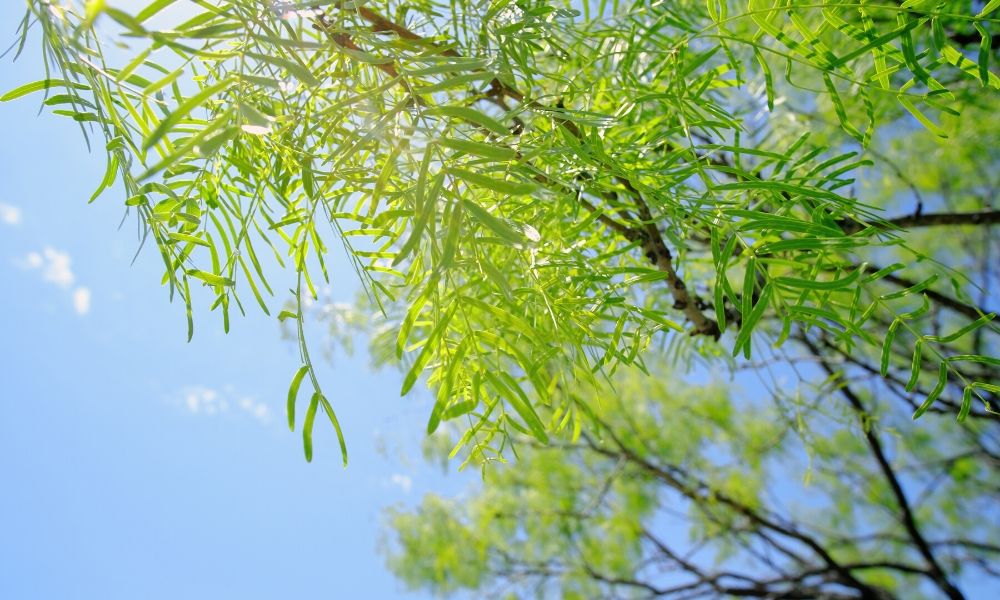Texas mesquite trees are an ubiquitous feature of Texan life. Reaching only 30 feet in height and bearing green bean-proportioned bean fruit, mesquites are technically part of the legume family. Though classified as invasive in some places, with expansive and disruptive root systems as deep as 200 feet, mesquites are also useful. Today, Texans are reimagining how these native beans can revolutionize area cuisine, and they already use the tree’s world-renowned wood for barbeque.
Apart from their utility, mesquites are also a quality desert tree to include on your property. No matter how you use them, you want to keep your mesquites in good health. To help, here are some common Texas mesquite tree diseases to watch for, with specific preventative measures you can implement before problems develop.
Slime Flux
Slime flux is a mesquite tree disease that reliably expresses itself through dark, wet patches descending from a tree wound or branch crotch. Due to a plethora of invading bacteria, this seepage feels slimy and smells strongly. Also called wetwood, this disease can slowly worsen and hamper, but not necessarily kill, a Texas mesquite tree. There’s no specific method of prevention apart from regular tree maintenance, including pruning and occasional deep watering.
Ganoderma Root Rot
Ganoderma root rot is a fungal disease. Ganoderma spores spread through the air or via rainwater, ultimately infecting Texas mesquite roots through existing wounds. Though it may take years, this disease can kill a mesquite by severely disrupting root function. To assess for Ganoderma root rot, look for shelf-like orange fungal growths along the base of the tree.
Similar to slime flux, there’s no one way to avoid this particular mesquite tree problem, though protecting it from root system wounds is a good start if you’re learning how to maintain a mesquite tree.
Powdery Mildew
Powdery mildew doesn’t seriously threaten a mesquite’s well-being, but it’s another common mesquite tree disease to mitigate. It manifests specifically on tree leaves, appearing white and powder-like on the surface. Calling a professional to apply Benomyl can manage powdery mildew, but it isn’t a necessity.
Mesquite Borers
The mesquite borer is a pest that affects mesquite trees in ways akin to the emerald ash borer. These invaders gain access to a mesquite through open wounds, meaning a healthy tree can prevent entry if there’s no available orifice. These insects do damage through their larvae, which hatch inside the tree and eat their way to the surface, harming sensitive vascular structures and more. Treating a borer-infected tree is difficult, but eliminating points of entry and shielding existing damage from the outside can cut down on your mesquite’s risk.
If you want to learn more about these and other Texas mesquite tree problems, contact our team at Sid Mourning Tree Services. And if your mesquite sustains damage from a disease, call our emergency tree service in Austin, TX. Our arborist will assess the state of your tree and advise you on next steps.

